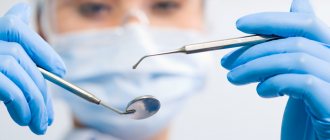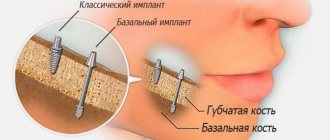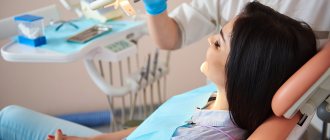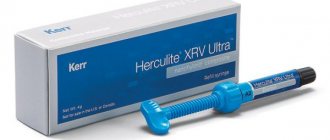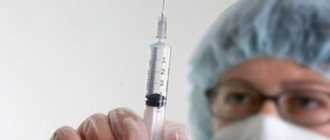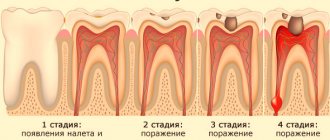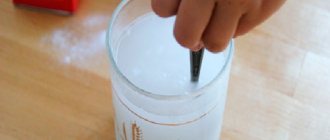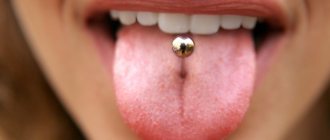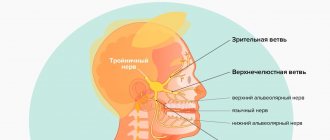Operations take place in the first half of the day.
The operation is performed on an empty stomach, you should not drink before the operation (at least 8 hours must pass after the last meal or drink).
The operation is not performed in the period immediately before, during or immediately after menstruation.
Operations are not performed during acute infectious diseases and during exacerbation of chronic diseases.
After discharge from the clinic (after operations) or after some non-surgical corrections, it is not recommended to drive independently.
How to prepare for surgery
Your good physical condition and optimistic attitude are an important factor in the success of the operation. Therefore, we recommend that you approach the preparation for surgery seriously and calmly, and assist the surgeon in achieving the best result. All factors that influence the course of the operation and facilitate rehabilitation must be discussed with your doctor and be sure to follow all his recommendations.
Here are the main factors influencing the success of the operation:
- Your well-being, health status, psychological state;
- It is necessary to postpone plastic surgery if there is the slightest symptom of ARVI until complete recovery and restoration of strength after the disease.
- Bring the surgeon's attention to any infection to which you are susceptible (herpes, infection of the skin, eyes, genitourinary tract).
- If you have chronic diseases, you should consult about the possibility of plastic surgery with your attending physician, and do not undergo surgery during an exacerbation of a chronic disease.
- Do not decide to have surgery when you are stressed or depressed. You should not have plastic surgery during a period of family troubles or divorce proceedings. During the post-rehabilitation period, you will need a calm environment, support and understanding of loved ones.
- Smoking and excessive alcohol consumption can weaken your health. If you are constantly taking medications, hormonal drugs, have been prescribed any other medications, or are undergoing treatment with traditional medicine, you must inform your plastic surgeon and anesthesiologist about this.
- Be sure to tell your anesthesiologist and plastic surgeon if you have any allergies to medications or any other products.
- Together with a plastic surgeon, carefully analyze and evaluate all the structural features of your body: asymmetry of the mammary glands or chest, shoulder position, structural features of the sternum and ribs, skin condition (presence of stretch marks).
- Do not hesitate to ask your plastic surgeon about any questions that remain unclear to you. Achieve complete mutual understanding between you and your doctor. Be sincere and open. If after all the discussions with the doctor you still have at least minimal doubts about the result, do a computer simulation.
- If you are prone to bleeding or bruise frequently or have nosebleeds, tell your surgeon and anesthesiologist.
- The formation of a thin and invisible postoperative scar largely depends on your compliance with your doctor’s recommendations. Excessive stretching and friction of the seam provokes the formation of a rough scar! Follow your plastic surgeon's instructions for suture care exactly and completely. Wear compression garments for as long as prescribed.
Our task is to make your life more beautiful. We do not perform operations for life-saving reasons, but after surgery in our center, your life will change: you will feel beautiful and confident, young and desirable. Be consistent and persistent in achieving your goal, help the plastic surgeon make your dream come true and it will definitely come true.
What you need to know to properly prepare for anesthesia.
- Operations cannot be performed during acute infectious diseases. Common colds and acute respiratory infections are the most common reasons for postponing surgery
- If you have chronic diseases, then before surgery under general anesthesia they should be in a state of stable remission (without exacerbation).
- The anesthesiologist may prescribe additional studies and consultations that are not included in the mandatory list, as well as reschedule and even cancel surgery for your safety.
- It is necessary to remember in advance (make a list) and inform the anesthesiologist about all existing diseases, operations, allergic reactions and medications that you are taking. In this case, no information can be insignificant or superfluous.
- You must remove all jewelry, piercings and contact lenses. It is advisable to keep your fingernails free of false nails and polish, as this may interfere with the operation of some sensors.
- For surgery, it is recommended to wear underwear made of natural cotton (no synthetics).
- You should not drink or eat before surgery. (6 hours before surgery, you must avoid taking any food or drink). The evening before surgery, prepare yourself a light dinner.
- If you are taking any medications, be sure to inform the anesthesiologist in advance, as some medications must be stopped before surgery.
Anesthesia today
Today there are three main types of anesthesia - local, general and spinal. For quick interventions and for children, inhalation anesthesia is used - the child inhales an anesthetic inhalation mixture through a mask and falls asleep. Intravenous anesthesia is used for long and difficult operations.
By the way
Epidural anesthesia does not work for 1 in 20 patients, and red-haired people need 20% more anesthetics to stop their pain. In traumatology, regional anesthesia is used - a local anesthetic is injected into the area of the nerve, providing complete anesthesia of the limb. Epidural anesthesia is very popular for facilitating the labor process, since the patient can either remain conscious or doze off under the influence of drugs.
Spinal anesthesia is difficult to control and is rarely used, but the patient is completely switched off and does not feel pain. Anesthesia with preserved consciousness is used only in special cases, most often in neurosurgery, if it is necessary to maintain the patient’s consciousness and communicate with him during the operation. Oral (through the mouth) and rectal (through the anus, using an enema) anesthesia is practically not used today. The intramuscular method of pain relief is also becoming a thing of the past.
"Frivolous" anesthesia
Many people associate anesthesia exclusively with serious operations, when a person is euthanized and completely anesthetized. However, everyone experiences anesthesia during less significant interventions, for example, in the dentist's office.
Article on the topic
Dental anesthesia, or what you need to tell your dentist about And despite the fact that there are modern safe drugs for local anesthesia, carpule technology is used, when the medicine is already prepared and packaged in syringes at the factory, not everyone has dental anesthesia without complications.
The anesthetic risk group includes 30% of those who came for dental treatment. These are people with cardiovascular diseases, allergies, and endocrine pathologies. The condition of the liver and kidneys plays an important role - you need to tell your doctor about the presence of any of these diseases, or better yet, provide medical documents.
Also vulnerable are the elderly, pregnant women, children and those who are very afraid of dental treatment.
Additional Tips
Avoid lifting heavy objects, bending over, playing sports, or taking hot baths for 5 to 7 days after surgery.
Within a few days, performance and the ability to drive may be reduced.
Remember to take medications prescribed by your dental surgeon after surgery.
We kindly ask you!
Appear for examination and removal of stitches 5-7 days after surgery, in agreement with your surgeon. You must immediately notify your surgeon or clinic administrator of any changes in your health.
Recommendations for caring for dental implants
The service life of the implant depends on:
- The correctness of the surgical and prosthetic stages carried out in the dental clinic.
- The patient's compliance with the recommendations given by the dentist immediately in the postoperative period and the period after implant prosthetics.
- Careful hygienic care of the “implant-crown” structure.
- Blood supply to bone tissue and gums in the area of implantation. (Smoking cigars and cigarettes has a very, very negative effect on peripheral blood circulation, which can even interfere with implant implantation.!!!)
Professional teeth cleaning is the optimal solution before extraction or prosthetics
The presence of foci of inflammation and pathogenic microflora in the oral cavity during surgery or prosthetics is a high risk of complications for the patient, which will not only delay the recovery process, but can also negate all the doctors’ manipulations. That is why you should not neglect professional dental hygiene, which will help get rid of tartar even in the most inaccessible places.
The EURODENT clinic network provides professional teeth cleaning using modern and safe equipment (find out more by following the link). We use:
Ultrasound device “Piezon Master-600” (Switzerland). It allows you to remove plaque and tartar without damaging the enamel thanks to gentle ultrasonic vibration. The cleaning process also restores the natural color of the enamel. Most often used in conjunction with the Air-flow system.
- Air-flow system (Switzerland). Plaque removal occurs under the influence of an aqueous solution of calcium bicarbonate, which is supplied under high pressure. The use of the “Air-flow” system allows you to remove the densest plaque both from the front part of the tooth and from the interdental space, even with crowded teeth. It is an excellent prevention of periodontitis and periodontal disease. Removing pigmented plaque allows you to restore the whiteness of your teeth without damaging the enamel. The cleaning procedure should be carried out 2-3 times, after each session it is necessary to coat the teeth with fluoride-containing preparations.
- Polishing the surface of teeth with abrasive pastes. This is a mandatory step in professional oral hygiene. Even with the most thorough removal of plaque and tartar, the tooth surface remains rough. This contributes to the formation of new dental deposits from microparticles of food and saliva, which over time will again become a source of pathogenic bacteria. Tooth polishing makes the surface of the teeth smooth and even, making it much more difficult for plaque to form. During the polishing process, special grinding attachments of various configurations and abrasive pastes of different grain sizes are used. The polishing procedure allows you to consolidate and preserve for a long time the effect of professional teeth cleaning.
- Device "Vector" (Germany). The principle of operation of the Vector device is based on the use of ultrasonic vibrations directed along the axis of tooth growth (sliding vibrations) and treatment of the tooth surface with a suspension of calcium hydroxyapatite. “Vector” effectively removes subgingival plaque and tartar, which serve as a source of infections, and polishes the tooth root - this allows you to preserve the effect of professional teeth cleaning for a long time.
If you want to maintain the health of your teeth for a long time and avoid complications after installing implants, braces or tooth extraction, be sure to take a course of professional dental hygiene 1-2 times a year. We remind you that the initial consultation with our specialists is free. Also available to patients of the Eurodent clinic.
Based on: 4 votes
After operation
— To avoid severe swelling and bleeding during the first 24 hours after surgery, it is necessary to apply an ice pack to the cheek on the side of the operation for 15-20 minutes with breaks of 30-40 minutes.
- Rinsing your mouth when bleeding is unacceptable!
— After sinus lift surgery, you should not drink through a straw, blow your nose vigorously, or puff out your cheeks.
- To reduce the likelihood of nosebleeds (after upper jaw surgery) and reduce post-operative swelling, you should sleep with your head elevated (add an extra pillow) for several days after surgery.
— It is not recommended to use tobacco products 1 week before and 2 weeks after surgery.
— It is prohibited to drive a car on the day of surgery with premedication.
- It is not recommended to eat until the anesthetic wears off. In the first days after surgery, it is recommended to eat soft, non-hot foods.
— It is not recommended to drink alcohol, coffee, or strong tea to avoid the negative effects of these drinks on blood circulation and wound healing.
Eating
Avoid chewing hard candy, ice, or other hard foods (such as hard chocolate or dry fish) as they may loosen or break the abutment screw.
Avoid foods such as caramel or toffee, as they may stick to the crown and cause the abutment screw to loosen.
Do not open bottles or crack nuts with your teeth for the same reasons.
Wear protective sports mouth guards when participating in sports and avoid direct blows to the face.
Refrain from grinding your teeth. If creaking occurs unintentionally or during sleep (bruxism), notify your dentist and he will make you a thin night guard.
The length of their service depends on the quality and regularity of care for implants.
Before and after implantation
Types of general anesthesia
Depending on the method of administering drugs for general anesthesia, inhalation and intravenous anesthesia are distinguished.
With inhalation anesthesia, the anesthetic enters the body through the respiratory tract; with intravenous anesthesia, it is injected into the bloodstream. A combined method involving inhalation and intravenous administration of the drug is actively used. To maintain external respiration, an endotracheal tube or laryngeal mask is used. The first method is called intubation anesthesia (or endotracheal), the second - mask. You will not need deeper knowledge about the specifics of an anesthesiologist’s work; it is much more important to understand how to properly prepare for anesthesia.
Good general anesthesia is the result of the consolidated efforts of the anesthesiologist and the patient. Therefore, we recommend that you read the next section very carefully.
Before surgery, it is necessary to carry out professional oral hygiene.
If the operation is performed with an anesthesiologist, you must come with an accompanying person, or the operation will be cancelled.
Recommendations for surgical treatment
After surgery, you may experience pain, which will go away as the tissue heals. Postoperative swelling or hematoma can also occur in areas adjacent to the surgical site, which is a natural consequence of surgery. There may be a slight increase in body temperature.
Please follow our recommendations!
The cardiovascular system
It is difficult to separate the effects of nicotine on the central nervous system and the cardiovascular system, they are so interrelated.
One of the typical manifestations of nicotine stimulation is a pathological increase in cardiac muscle activity due to the effect of nicotine on the conduction system of the heart. This effect consists of increasing the contractile activity of the heart, vascular tone, and blood pressure. The myocardium in such situations consumes more oxygen, and this is precisely the problem - due to insufficient respiratory function.
Nicotine is a tissue poison, and one of its toxic properties is that it disrupts the ratio of calcium and sodium in cells, leading to hyperexcitability of cardiomyocytes (heart cells) with the subsequent occurrence of arrhythmia and ischemic foci.
How to survive without water?
What you can do if you need to dull the desire to drink:
Rinse your mouth with cool water and moisten your lips with it.
This soothes the dry mucous membranes, and thirst subsides for a while. Another option is to fill a bowl with cold water or ice cubes and breathe deeply through your mouth directly over it.- Spray your face, armpits, inner wrists and elbows with water.
Or apply chilled gel compresses to these areas of the body and wrap them with a damp cloth. Here the receptors are located as close as possible under the surface of the skin and immediately respond to any external influence. The brain is “deceived” by receiving a signal from them about the presence of water. - Take a cool shower. This helps reduce sweating and water loss from the body.
- Wear light clothes made from natural fabrics (cotton, linen) that do not restrict movement, covering the body as much as possible. It also reduces the rate of fluid loss through the skin.
- In the last glass of water you drink before the ban comes into force, add a teaspoon of apple cider vinegar, a couple of drops of regular vinegar (vinegar essence) or squeeze the juice of a quarter of a lemon. The acids in the drink greatly dull or completely block the sensitivity of the receptors in the mouth, and the brain temporarily forgets about thirst. This method is considered the most effective, allowing you to last 12 hours or more without drinking.
- Breathe through your nose. If you do this with your mouth, the mucous membrane dries out much more. The same thing happens with frequent yawning, laughing, and talking. For those who practice breathing exercises, now is the time to repeat a few exercises - this will help you calm down and distract yourself.
- Hold a coin or pebble in your mouth to activate salivation - this creates the illusion of quenching thirst. Copper coins are especially useful in this sense. In Russia, coins in denominations of 1, 2 and 5 rubles are made from a copper-containing alloy. Chewing gum has a similar effect, but you should consult your doctor about the possibility of using it.
Is it possible not to wake up after anesthesia?
Many patients are afraid that they may not wake up after anesthesia. On the one hand, this is possible, but these cases are extremely rare. According to statistics, this happens in one out of two hundred thousand planned operations, but even then, most often death occurs not due to anesthesia, but in connection with surgical intervention.
But there are complications after anesthesia. For example, smokers are at high risk of developing bronchitis and pneumonia. After surgery, memory, attention and the ability to remember are often reduced, but this lasts from two weeks to several months. Some patients may experience nausea, dizziness, temporary memory loss, sore throat, hoarseness, but these sensations pass quickly and do not cause harm to the body.
